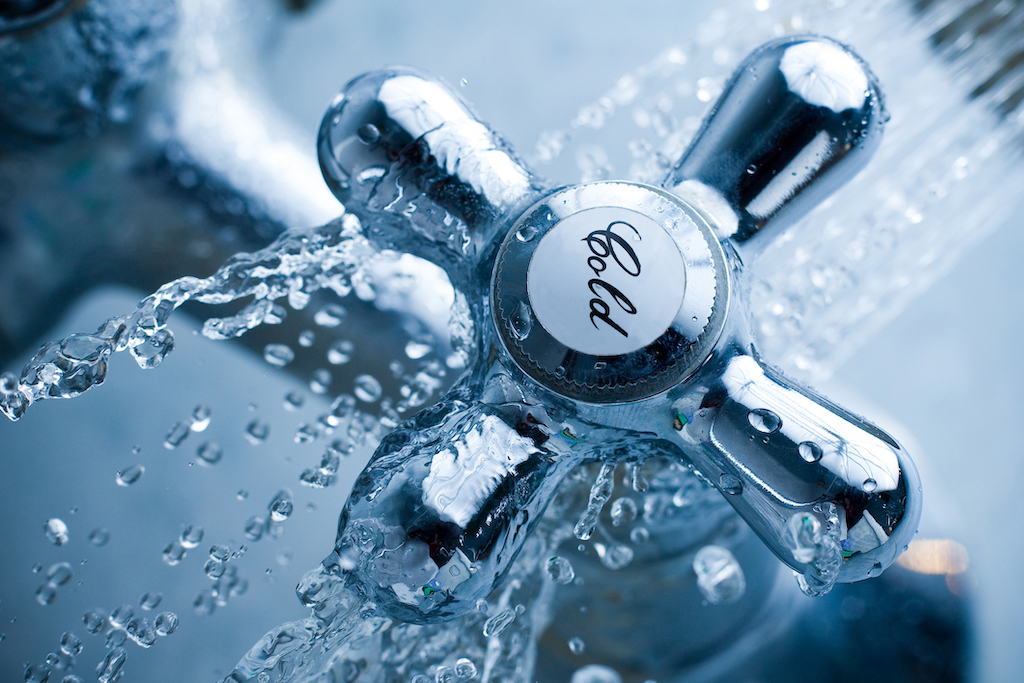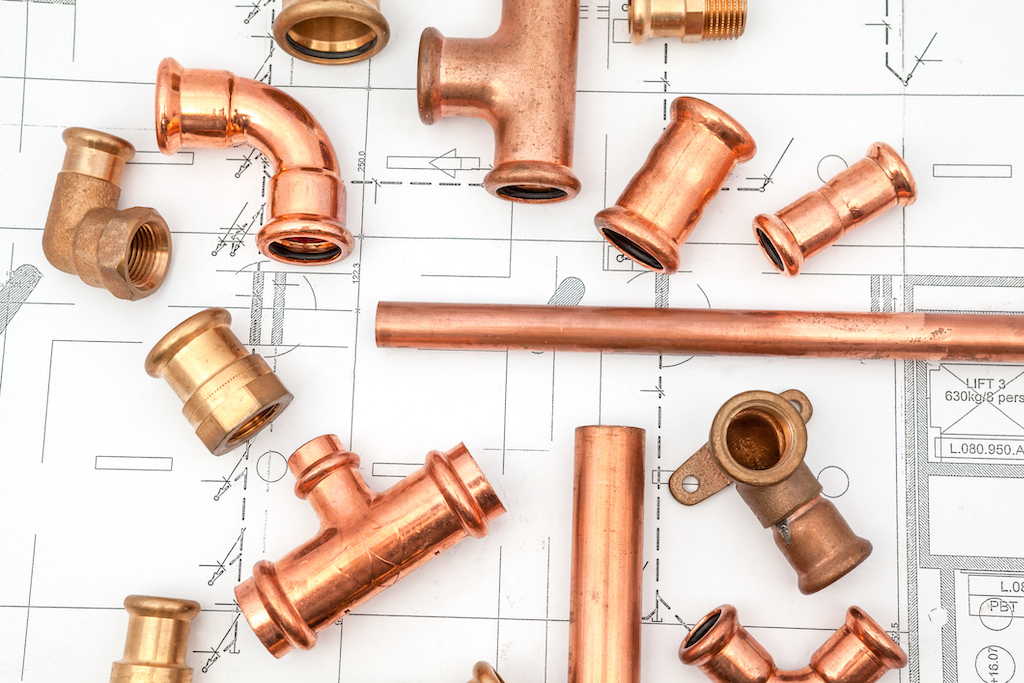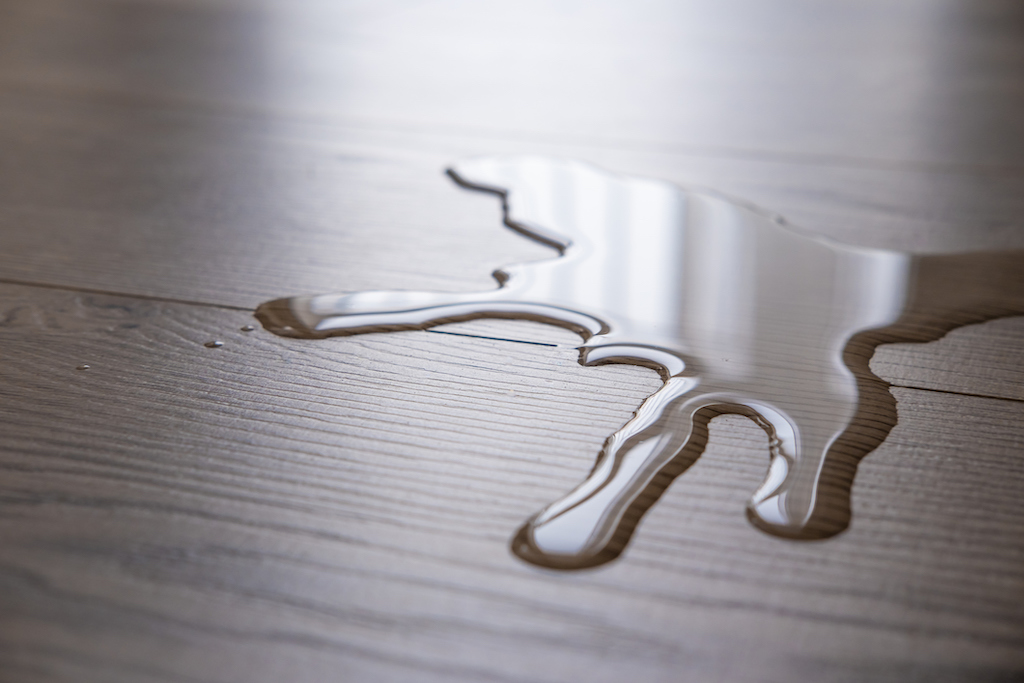Understanding Hidden Water Leaks
Are you worried about hidden water leaks in your home?
Identifying and preventing these leaks is crucial to maintaining a safe and dry living environment.
Hidden leaks can cause significant damage over time, leading to expensive repairs and health hazards such as mold growth.
In this comprehensive guide, we’ll explore effective methods for detecting and preventing hidden water leaks to help you safeguard your home.
Water leaks can occur in various parts of your home, often going unnoticed until substantial damage has been done.
Whether it’s a small drip from a faucet or a slow leak in a pipe behind your walls, undetected leaks can waste thousands of gallons of water and lead to high utility bills.
Common Sources of Hidden Water Leaks
Hidden water leaks can occur in various parts of your home, often going unnoticed until substantial damage has been done.
Here are some common sources:
Toilet Flange Leaks:
These leaks happen where the toilet meets the waste pipe below.
Signs include water seeping around the toilet base, loose or damaged flooring, and stains on the ceiling below the bathroom?.
Toilet flange leaks can cause significant damage to the flooring and the subfloor, eventually leading to the need for extensive repairs.
Sink Rim Leaks:
Water can seep under the sink rim or faucet base, leading to puddles or dampness inside the cabinet.
Signs to look for include loose plastic laminate near the sink and the presence of water stains inside the cabinet??.
Regularly checking the seal around the sink and faucet can prevent these leaks from causing more serious issues.
Appliance Failures:
Dishwashers, washing machines, and water heaters are common culprits for leaks.
These appliances have hoses and connections that can wear out over time, leading to leaks.
Regularly inspect these hoses and connections for signs of wear or damage to prevent major issues?.
How to Detect and Prevent Hidden Water Leaks
DIY Detection Methods
Early detection of water leaks can save you from extensive damage. Here are some DIY methods you can use:
Water Meter Test:
One of the simplest ways to check for hidden leaks is by using your water meter. Here’s how:
- Turn off all water sources in your home, including faucets, appliances, and irrigation systems.
- Check the water meter and note the reading. Wait for at least an hour without using any water.
- Recheck the meter. If the meter has moved, it indicates a leak somewhere in your plumbing system?.
This method helps in identifying whether there’s a leak, but additional steps might be needed to pinpoint its exact location.
Food Coloring Test:
This is a quick and easy way to detect leaks in your toilet:
- Add a few drops of food coloring to the toilet tank.
- Wait for about 15 to 20 minutes without flushing.
- Check the toilet bowl. If the color appears in the bowl, it indicates that water is leaking from the tank??.
This method helps identify leaks that might be wasting significant amounts of water without being immediately obvious.
Water-Sensitive Paper:
For a more comprehensive leak detection, consider using water-sensitive paper:
- Attach the paper to suspected leak-prone areas, such as pipes under sinks or along plumbing lines.
- Inspect the paper regularly for wet spots or color changes, which indicate moisture presence?.
This method is particularly effective for uncovering hidden leaks within walls, ceilings, or confined spaces where moisture might accumulate.

Professional Detection Techniques
For more complex or hidden leaks, professional detection services are recommended. These include:
Infrared Thermography:
This advanced technique uses thermal imaging cameras to detect temperature variations that can indicate the presence of water leaks behind walls or under floors.
Water leaks often cause cooler spots that can be detected by these cameras.
This non-invasive method allows for quick and accurate identification of leaks without causing additional damage to your home??.
Acoustic Technology:
Acoustic leak detection uses sensitive microphones to capture sound frequencies produced by water escaping through leaks.
This method is particularly useful for locating leaks within walls, floors, or underground pipes.
By analyzing the sound patterns, professionals can pinpoint the exact location of the leak with high precision, allowing for targeted repairs without unnecessary destruction??.
Moisture Meters:
These devices measure the moisture levels in building materials like wood, drywall, and concrete.
Elevated moisture readings in unexpected areas can indicate hidden leaks.
Moisture meters are especially useful for detecting leaks that might not be visible but are causing gradual damage over time?.
Tracer Gas Detection:
In cases where other methods are inconclusive, professionals may use tracer gas detection.
This involves introducing a safe, non-toxic gas into the plumbing system.
The gas escapes through the leaks and can be detected by special sensors, even in hard-to-reach places.
This method is effective for finding leaks in both water and sewer lines?.
Using these professional techniques ensures that hidden leaks are accurately identified and repaired, minimizing the risk of extensive damage and costly repairs.
Preventing Hidden Water Leaks
Regular Inspections and Maintenance
Preventive maintenance is key to avoiding hidden water leaks.
Regular inspections and timely repairs can save you from extensive damage and costly repairs.
Here are some important steps:
Routine Checks:
Regularly inspect visible pipes, faucets, and appliances for signs of moisture or damage.
This includes checking under sinks, around appliances like dishwashers and washing machines, and near water heaters.
Look for signs of leaks such as puddles, rust, or corrosion??.
Monitor Your Water Bill:
An unusually high water bill can be an indicator of a hidden leak.
If your water usage has not increased but your bill has, it’s time to investigate further.
Small leaks can waste a significant amount of water over time, so keep an eye on your monthly bills?.
Professional Maintenance:
Schedule regular plumbing inspections with a professional plumber.
They have the expertise to identify and fix small problems before they escalate.
Professional plumbers can also provide maintenance services such as checking the integrity of pipe joints, fixtures, and seals?.
Upgrading Fixtures and Appliances
Replace Old Fixtures:
Old and worn-out fixtures are more prone to leaks.
Replace them with new, more reliable models to prevent future issues.
This includes faucets, showerheads, and toilet flappers.
Modern fixtures are often designed to be more water-efficient, which can also help reduce your water usage?.
Install Leak Detectors:
Leak detectors provide immediate alerts when a leak is detected, allowing you to address the problem before it causes significant damage.
These devices can be installed near water heaters, washing machines, and other appliances prone to leaks.
Some smart leak detectors can even be connected to your smartphone for remote monitoring??.
Seasonal Preparations
Protecting Pipes in Cold Weather:
Insulate pipes in unheated areas such as basements, crawl spaces, attics, and garages to prevent them from freezing and bursting during winter months.
Pipe insulation is a simple and effective way to protect against cold weather damage.
Additionally, keep your home adequately heated during cold spells and allow faucets to drip slightly to prevent pressure buildup in the pipes??.
Check for Pipe Bursts:
After particularly cold weather, check basements and crawl spaces for signs of burst pipes.
Look for water stains, puddles, and damp spots.
Address any issues immediately to prevent further damage?.

Addressing Detected Leaks
Tighten Connections:
Minor leaks can often be fixed by tightening loose connections.
Use a wrench to gently tighten the fittings on pipes, faucets, and appliances.
Be careful not to overtighten, as this can cause damage to the fittings or pipes?.
Replace Washers and Seals:
Worn-out washers and seals are common causes of leaks in faucets and valves.
Replacing these small parts can ensure a proper watertight seal, preventing water from dripping or seeping out.
This is a simple DIY task that requires minimal tools and expertise.
Use Plumber’s Tape:
For small leaks at pipe joints, applying plumber’s tape (also known as Teflon tape) can create a secure seal.
Wrap the tape around the threads of the pipe before reconnecting it.
This helps to prevent leaks by filling any gaps in the threads?.
Professional Repairs for Major Leaks
Hiring a Plumber:
For complex repairs, especially for leaks hidden within walls or floors, it’s best to hire a professional plumber.
Plumbers have the necessary tools and expertise to handle intricate plumbing issues and ensure that repairs are done correctly.
They can also perform diagnostic tests to identify the source of the leak accurately??.
Comprehensive Repair Services:
When hiring a professional, ensure they perform thorough diagnostics and repairs to prevent future leaks.
A comprehensive approach includes checking the entire plumbing system for potential weak points and addressing any issues found.
This proactive measure can save you from future headaches and expensive repairs??.
Moisture Meter Usage:
Using a moisture meter, professionals can detect subtle signs of moisture buildup, aiding in pinpointing the leak’s location.
This is especially useful for leaks concealed within walls or under flooring.
Once identified, professionals can access the affected area with minimal disruption, preventing further damage?.
Structural Repairs:
In cases where leaks have caused significant damage to walls, floors, or ceilings, structural repairs may be necessary.
This can involve replacing damaged drywall, flooring, or insulation to restore the integrity of your home.
Addressing these issues promptly is crucial to prevent mold growth and further deterioration??.
Importance of Timely Repairs
Addressing water leaks promptly is crucial to prevent further damage and save on repair costs.
Here are some reasons why timely repairs are essential:
Prevent Structural Damage:
Water leaks can cause significant structural damage to your home.
Prolonged exposure to moisture can weaken the foundation, walls, and floors, leading to costly repairs.
In severe cases, water damage can compromise the structural integrity of your home, making it unsafe??.
Avoid Mold Growth:
Hidden water leaks create the perfect environment for mold growth.
Mold not only damages building materials but also poses serious health risks, including respiratory issues and allergic reactions.
Addressing leaks promptly helps prevent mold from taking hold and spreading.
Save on Water Bills:
Even small leaks can waste a significant amount of water over time, leading to higher water bills.
Fixing leaks as soon as they are detected can save you money on your monthly utility bills.
Monitoring your water usage and addressing discrepancies promptly is a proactive way to manage your water consumption??.
Protect Personal Property:
Water leaks can damage personal property, including furniture, electronics, and important documents.
By addressing leaks quickly, you can protect your belongings from water damage and avoid the costs associated with replacing or repairing damaged items??.
Maintain Home Value:
A well-maintained home retains its value better than one with ongoing issues like water leaks.
Regular maintenance and prompt repairs help preserve your home’s condition, making it more attractive to potential buyers if you decide to sell.
A history of proper maintenance can also be a selling point, demonstrating that the property has been well cared for??.
Seasonal Preparations
Taking proactive measures to prepare your home for different seasons can prevent hidden water leaks.
Here are some strategies to ensure your plumbing system remains intact throughout the year:
Winter Preparations
Insulate Pipes:
During the winter, pipes in unheated areas such as basements, crawl spaces, attics, and garages are susceptible to freezing and bursting.
Insulating these pipes can prevent this issue.
Use pipe insulation sleeves, heat tape, or other insulating materials to protect your plumbing?.
Spring and Summer Preparations
Inspect Irrigation Systems:
Spring and summer are prime times for using irrigation systems for your lawn and garden.
Check your irrigation system for leaks, clogs, and broken sprinkler heads.
Repair any issues to ensure efficient water usage and to prevent water damage to your property??.
Fall Preparations
Clean Gutters and Downspouts:
Ensure that gutters and downspouts are clean and free of debris.
Blocked gutters can cause water to overflow and damage your home’s foundation and exterior walls.
Regular cleaning prevents these issues and ensures proper water drainage?.

Year-Round Maintenance
Professional Plumbing Checkups:
Schedule annual plumbing checkups with a professional plumber.
They can perform thorough inspections, identify hidden leaks, and provide maintenance services to ensure your plumbing system remains in good condition.
By following these seasonal and year-round maintenance tips, you can prevent hidden water leaks and protect your home from water damage.
Regular inspections and timely maintenance are key to ensuring your plumbing system operates efficiently and safely throughout the year.
Conclusion
Proactively detecting and preventing hidden water leaks is essential for safeguarding your home from water damage and maintaining its value.
Regular inspections, timely maintenance, and professional services play crucial roles in managing these risks effectively.
By following the strategies outlined in this guide, you can protect your home from the costly and damaging effects of hidden leaks.
If you’re in Bethesda, MD, and need professional assistance with detecting and preventing hidden water leaks, Clarksburg Plumbing is here to help.
With expert services tailored to identify and repair leaks efficiently, Clarksburg Plumbing ensures your home remains safe, dry, and well-maintained.
Don’t wait until a small leak becomes a big problem—contact Clarksburg Plumbing today for all your plumbing needs.
FAQs About Hidden Water Leaks
- What are the signs of hidden water leaks in my home?
Common signs of hidden water leaks include unexplained increases in water bills, damp or musty odors, discoloration or staining on walls and ceilings, warped or buckling flooring, and the sound of running water when all fixtures are turned off. Additionally, the presence of mold or mildew in areas that should be dry can also indicate a hidden leak??.
- How can I prevent hidden water leaks in my home?
Preventing hidden water leaks involves regular inspections and maintenance. Check visible pipes and connections for signs of wear or damage, install leak detectors, and ensure proper insulation of pipes to prevent freezing. Regularly maintaining and upgrading old fixtures and appliances, as well as scheduling annual plumbing checkups with professionals, are also key preventive measures?.
- What should I do if I find a hidden water leak?
If you find a hidden water leak, it’s important to act quickly. For minor leaks, you can often tighten connections or replace washers and seals yourself. For more serious leaks or if the source of the leak is difficult to locate, it’s best to hire a professional plumber. They have the tools and expertise to accurately diagnose and repair leaks, minimizing further damage to your home?.
- How can professional leak detection services help?
Professional leak detection services use advanced techniques such as infrared thermography, acoustic technology, and moisture meters to accurately locate hidden leaks. These methods allow for non-invasive detection of leaks behind walls, under floors, and in other hard-to-reach areas. Professionals can then provide targeted repairs, ensuring that leaks are fixed effectively and preventing future issues??.
- Why is it important to address water leaks promptly?
Addressing water leaks promptly is crucial to prevent extensive damage to your home. Unresolved leaks can lead to structural damage, mold growth, and higher water bills. Early intervention helps mitigate these risks, preserving the integrity of your home and saving you money on repairs and water usage.


